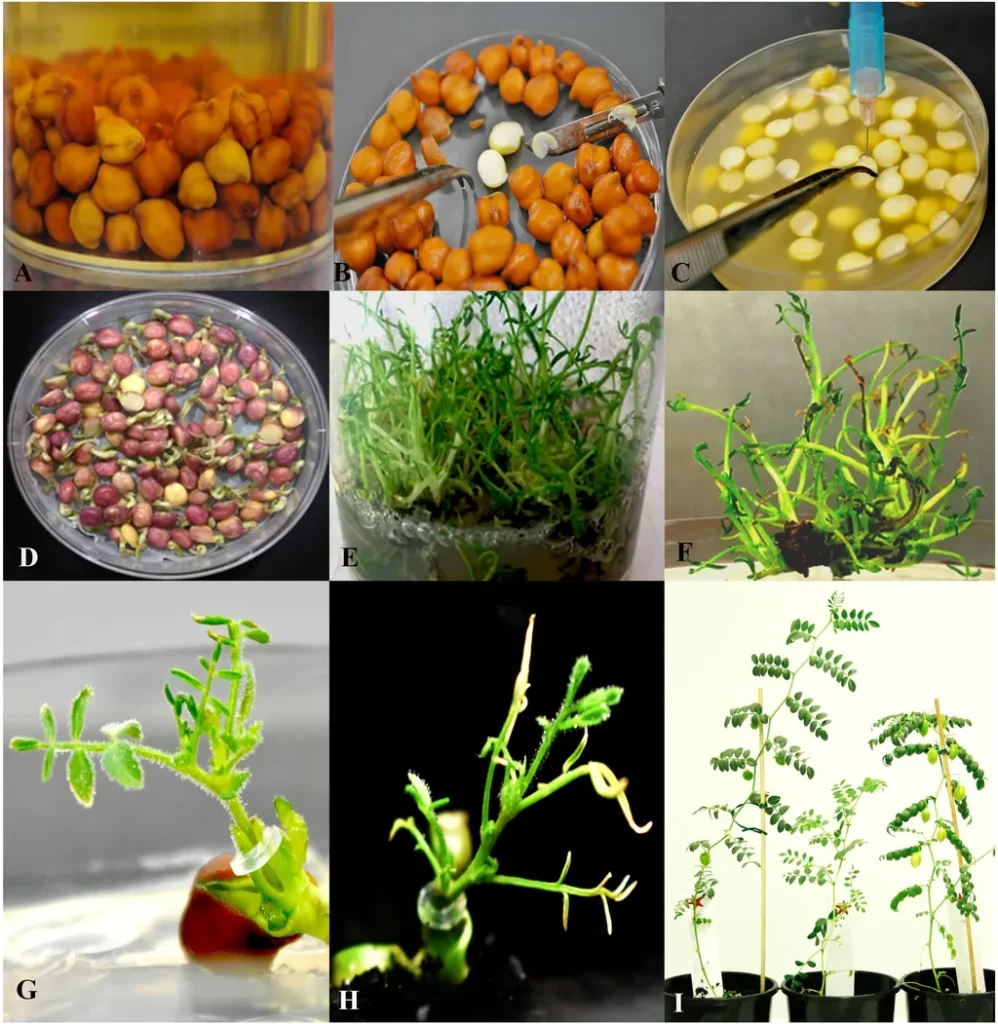In the quest to reduce agriculture’s reliance on synthetic fertilizers, scientists have made a significant stride in understanding the genetic basis of nitrogen fixation in chickpeas. A recent study published in *Frontiers in Plant Science* has identified novel genetic markers associated with efficient biological nitrogen fixation (BNF) in chickpeas, a discovery that could revolutionize sustainable farming practices.
Chickpeas, the second most important food legume crop, have the unique ability to convert atmospheric nitrogen into ammonia through a symbiotic relationship with Mesorhizobium cicero. This process, known as BNF, not only enhances soil health but also reduces the need for exogenous nitrogen applications. However, the molecular mechanisms underlying root nodulation in chickpeas have remained largely unexplored until now.
Researchers, led by Chandana B. S. from the Division of Genetics at ICAR-Indian Agricultural Research Institute in New Delhi, conducted a comprehensive study involving a diverse collection of 284 chickpea genotypes. Evaluated across four different environments, these genotypes exhibited significant trait variation, particularly in nodulation and yield traits. The study identified four high-nodulating genotypes—ICC 7390, ICC 15, ICC 8348, and ICC 2474—that consistently performed well across various locations.
The team employed genome-wide association studies (GWAS) to pinpoint specific genetic markers linked to nodulation traits. “We identified 65 significant marker-trait associations (MTAs) for the number of nodules and 109 for nodule fresh weight,” explained Chandana B. S. “Two SNPs, Ca1pos289.52482.1 and 6_33340878, which we had identified in earlier studies, were validated through independent population studies, confirming their reliability.”
The study also revealed that a substantial proportion of these MTAs were situated within intergenic regions, suggesting their potential to modulate genes associated with nodulation and yield traits. These findings could be instrumental in developing Kompetitive allele-specific PCR (KASP) markers, which can be used in marker-assisted breeding programs to enhance chickpea varieties.
The commercial implications of this research are profound. By identifying genotypes with superior nodulation capabilities, farmers can reduce their dependence on synthetic nitrogen fertilizers, leading to more sustainable and cost-effective agricultural practices. “This research provides a genetic roadmap for breeding chickpea varieties that are not only high-yielding but also environmentally friendly,” said Chandana B. S.
The study’s findings could also pave the way for similar research in other leguminous crops, potentially transforming the agricultural landscape. As the global push for sustainable farming intensifies, such genetic insights are invaluable. The research, published in *Frontiers in Plant Science* and led by Chandana B. S. from the Division of Genetics at ICAR-Indian Agricultural Research Institute, marks a significant step forward in the quest for sustainable agriculture.

